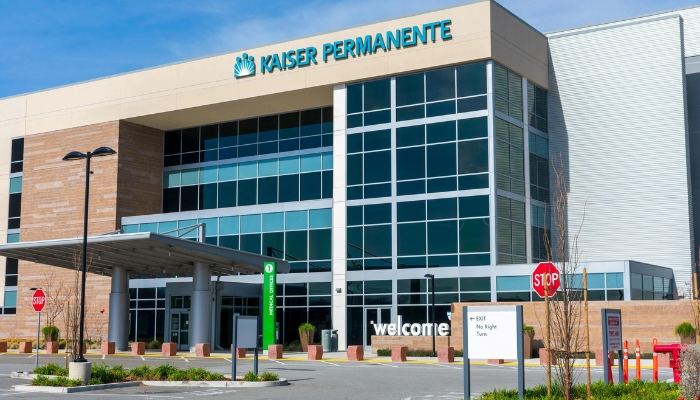Kaiser Permanente Workers Stage Historic Strike
Anúncios
In a landmark event, more than 75,000 unionized employees of Kaiser Permanente, one of the United States’ largest not-for-profit healthcare providers, have initiated what is now being regarded as the largest healthcare worker strike in the nation’s history. These striking employees are scattered across multiple states, with the majority located on the West Coast, specifically in California, Colorado, Washington, Virginia, Oregon, and Washington, D.C. They are all represented by a coalition of unions that together account for a substantial 40% of Kaiser Permanente’s overall workforce. The strike commenced at 6 a.m. local time and is expected to continue until Saturday morning.
The strike came after negotiations between the coalition and Kaiser Permanente concluded without reaching a settlement. However, during this period, tentative agreements were made, addressing some of the unions’ primary concerns. According to a statement by Kaiser Permanente, while a contract settlement hasn’t been reached yet, these tentative agreements align with the unions’ priorities. The healthcare provider expressed its intention to cooperate with union leaders to promptly reconvene bargaining discussions.

This unprecedented strike is taking place against a backdrop of increased labor activity in the United States. Across various industries, tens of thousands of workers are participating in strikes and protests, advocating for better pay, improved benefits, and safer working conditions. In the healthcare sector, the focus has been on creating more secure and safe work environments for healthcare workers, particularly in the wake of the ongoing pandemic.
Key issues that led to this strike include the demand for enhanced staffing levels, as current shortages are compromising patient care and pushing many workers to their limits. Striking employees encompass a broad spectrum of roles within the healthcare system, ranging from nursing staff and dietary workers to receptionists, optometrists, and pharmacists. The strike was prompted by the expiration of the workers’ union contracts on September 30th, with negotiations between the union and Kaiser Permanente continuing up until the strike’s commencement. Picket lines at facilities in Virginia and Washington, D.C. opened at 7 a.m. ET.
Kaiser Permanente made efforts to prevent the strike, with negotiations ongoing until the last minute. However, as 6 a.m. arrived on the West Coast, no agreement had been reached, leading employees to participate in the strike.
It’s important to note that this strike is temporary, and Kaiser Permanente workers are expected to return to their jobs on October 7th at 6 a.m. local time in each participating state. Nevertheless, there is the possibility of a “longer, stronger” strike in November if an agreement between the coalition and Kaiser Permanente is not reached following this initial strike, as communicated by SEIU-UHW, the largest union in the coalition.
One of the primary concerns of striking employees is the shortage of staff, leading to feelings of overwork and burnout. Kaiser Permanente has acknowledged these challenges and committed to accelerating hiring, with a goal of hiring 10,000 new employees for union-represented positions by the end of 2023.
The union coalition’s demands also include higher pay, protections against outsourcing, and more advanced notice when remote workers are required to return to in-person work. Kaiser Permanente has offered location-dependent wage increases for each of the four years of the new contract, with a maximum of 4% annually. However, the coalition rejected this offer, asserting that it does not adequately address the rising cost of living. Instead, they are requesting an across-the-board 6.5% raise in the first two years of the contract and a 5.75% raise in the subsequent two years.
This strike resonates with the broader labor movement in the United States, where workers from various sectors are mobilizing to address pressing issues in their workplaces. The healthcare industry has witnessed a notable increase in strike activity, with healthcare workers making up a significant portion of the workforce. Despite comprising only about 9% of private sector union members nationwide, healthcare workers have accounted for a substantial share of major strikes.
In light of the ongoing pandemic and shifting dynamics in the labor market, healthcare workers’ concerns about staffing levels, burnout, and compensation have become increasingly prominent. The strike at Kaiser Permanente reflects the challenges faced by healthcare workers across the country as they navigate these complex issues in their pursuit of better working conditions and fair compensation.
While the strike may temporarily affect non-emergency and elective services, Kaiser Permanente has assured that its hospitals and emergency departments will remain operational during the strike period. The healthcare provider has also prepared for the strike by ensuring that facilities are staffed and supported by experienced personnel.
This multi-state strike is part of a larger trend of heightened labor activism in the United States, with workers across various industries taking a stand for their rights and demanding improvements in their working conditions and compensation.
See also: Appeals Court Limits Government’s Social Media Involvement



